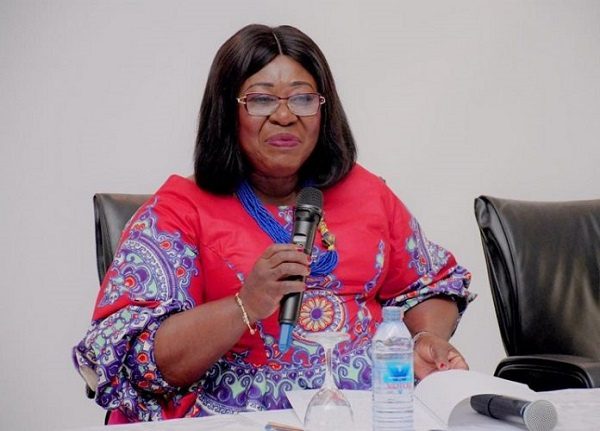The Chief of Staff, Akosua Frema Osei-Opare has said the Ghana School Feeding Programme is steadily moving towards universal coverage.
She described this news as heartwarming.
She further stated that the plan of government to incrementally expand the School feeding programme to cover all children enrolled in public schools from Kindergarten (KG) to primary six (6) is a laudable one.
She said these during the 2021 UG alumni lecture on the theme “Social Protection in Ghana: Are we on track?”
Madam Ose-Opare said “The 2020/2021 academic year enrolment data shows that there are about 4.73 million pupils nationwide.
“The 2022 National Budget (YES, the Famous budget) proposes to increase coverage from the current 3.4 million to 4 million pupils. This would immediately increase coverage from the current 71.8 % to 84.5%.
“This is indeed a positive move towards increasing equity across the country in the delivery of the Programme.
“A universal coverage would certainly reduce the need for intense lobbying by various community actors to get their schools captured under the school feeding programme.
“A fiscal space analysis gap study conducted by UNICEF in 2020 shows that with the exception of Burkina Faso, Ghana’s expenditure on school feeding as a percentage of GDP is higher than that of Tanzania, Ethiopia, Kenya, Zambia, Senegal and other Sub-Saharan African countries. Furthermore, as a percentage of GDP, Ghana’s expenditure on school feeding exceeds that of other countries such as Brazil, South Africa and Malaysia even though these countries have a higher per capita income.
“Ghana’s commitment towards fighting poverty is obvious in the direct budgetary interventions that are made for programmes that address inequality.
“As we expand GSFP to universal coverage, it is imperative that we enhance Monitoring and Evaluation (M&E) systems as well as digitalize the GSFP processes. We must ensure that the money spent on such programmes directly benefit their intended targets and with efficacy.
“A strong participation and oversight at the decentralized levels of government is also needed for enhanced quality of service delivery. The district can assist in monitoring the quality and quantity of food served, frequency of cooking by caterers.
“The decentralized system can better motivate the participation of parents and opinion leaders to enhance timeous delivery of services.”
Source: 3news.com|Ghana


